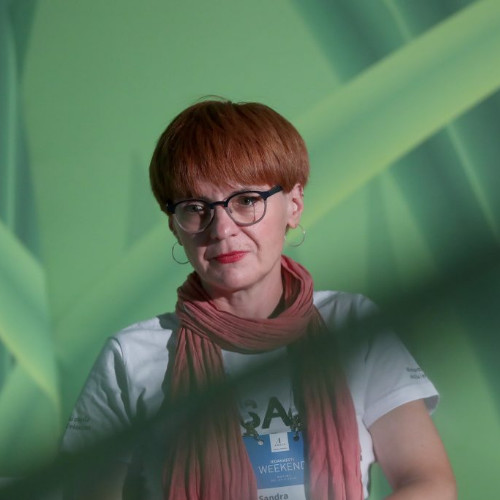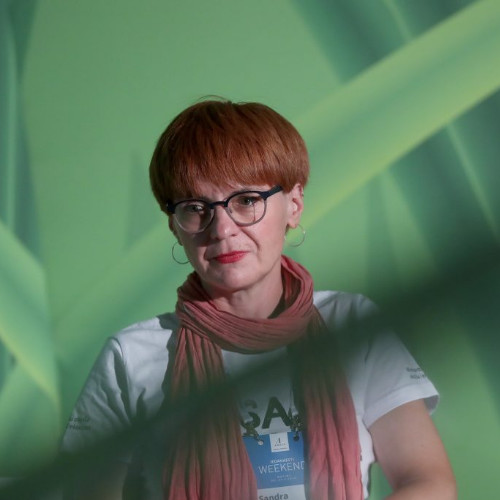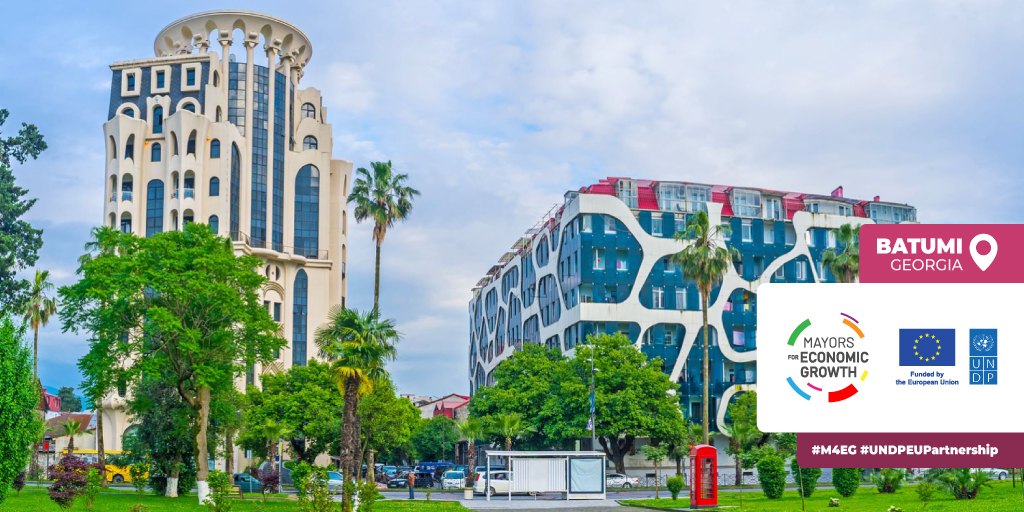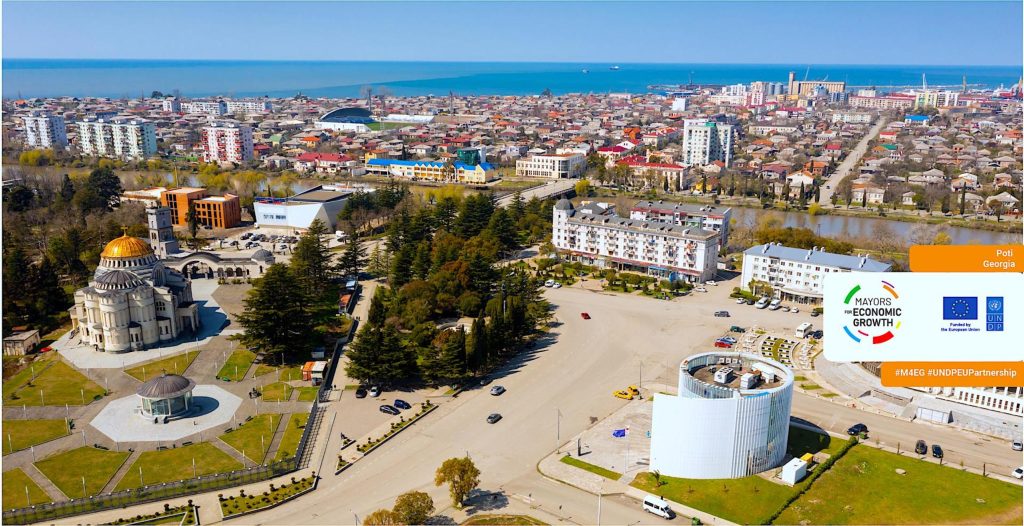“Imagine the city we want”


Op-ed by Sandra Vlašić, UNDP Wordsmith
The UN-Habitat World Urban Forum, that recently took place in the Polish city of Katowice, has concluded on showing many efforts are still to be delivered to achieve the Sustainable Development Goal 11 “sustainable cities and communities”.
Despite many international and regional political commitments, like the Agenda 2030 and the EU Green Deal, the latter with two Missions aiming for sustainable, resilient and climate-neutral cities, we’re still running beyond the clock. “Our community’s complex challenges cannot be fixed by technical solutions alone.” explains Charentsavan community from Armenia, capturing the essence of the issues cities are dealing with.
A painfully realistic rehearsal for future emergencies?
The thing is, cities are complex ecosystems placed in a complex world where unimaginable things are happening. The EU Missions were compared to the “man to the Moon” moment by President of the European Commission Ursula von der Leyen, when she unveiled the EU Green Deal. And indeed, all the unprecedented things that happened made us feel like we are really struggling through the unknown part of space – from the COVID-19 pandemics and lockdowns, summer floods in Germany, tornados in Central Europe, temperature heat records, droughts and wildfires in the Mediterranean area, to the war in Ukraine, skyrocketing fuel prices, gas crises, economic crises… I could go on and on. We have to deal with the present and think about the future at the same time.The missions must go on and this is where a new way of doing things comes into place, linear and projectized approaches no longer work.
While there are 112 European cities on a “Green Moon” mission to get to net-zero carbon and become climate-neutral by 2030, not so far in the eastern neighbourhood, there are three times more cities and municipalities on a sister-mission called Mayors for Economic Growth, or in short #M4EG.

What is #M4EG?
“M4EG is a joint Research & Development initiative of the EU and UNDP that attempts to move beyond the traditional donor-recipient relationship,” explains Tina M. S. Stoum, Mayors for Economic Growth Regional Project Manager. “It is built on the painful realization that most development work brings incremental change rather than the transformational change we so desperately need in our societies. We see the initiative as a ‘sandbox’ to test and try new tools and approaches. This new value proposition is called ‘portfolios,’ which is an alternative to the standard ‘projectized-siloed approach’ we see every day around us. “
The M4EG is not a standard project, it is an invitation to change. Complex issues require systemic answers. Mariela Atanassova,Strategic Innovation Specialist & Cities Lead from Chora Foundation explains why we need such a mixed approach: “The premise behind this answer is that we are dealing with complex systems, and they cannot be changed by designing a perfect plan and executing it, because systems do unpredictable things. You must adopt tools that allow you to discover the way to change.”
This is what M4EG is doing and it is growing into a platform for engaging cities and municipalities from the Eastern Partnership countries to support their green, inclusive, digital transition and to work on the local economic development 2.0.
It engaged so far more than 350 local authorities from Armenia, Azerbaijan, Moldova, Georgia and Ukraine on a journey into reinventing the future of cities and making them futureproof. M4EG entered a second phase of activities in 2021, following and building on the previous 2017-2020 phase. Can we imagine it evolving into a big “Mission Cities” collaborative platform for all EU cities and their neighbours?
Reimaging, how?
“Working directly with municipalities, we embed ourselves in the local context – going hyperlocal – to learn and design together what transformation pathways could look like in the city or town ecosystem. This is an ambitious task for us and challenges us to go outside our comfort zone, from being a solutions provider to a learner. It also entails going beyond interdisciplinary to multidisciplinary frame as complex challenges, such as the renewable energy transition, inequalities, trust in local authorities, often dance together,” Tina Stoum explains.
M4EG cities have several tools at their disposal that are a combination of funding facilities, facilitation learning, mentoring, connecting and creating a community and eventually, a joint Urban Learning Centre. There are 13 cities selected by the EU Call for Proposals for annual portfolio calls, 18 cities that are going through the Urban Imaginaries and 9 cities selected for the 2+year Portfolio Journey. For now. Last but not least, M4EG in crisis is adapting to support Ukrainian and Moldovan towns and cities that are at the forefront of the crisis response, recovery, and renewal.
Reimagining cities, in practice
The Armenian city of Areni explores how to delve further into sustainable tourism, enable and maintain a green environment for residents, and how to use it as a development lever and attract funding for infrastructure renewal. The Georgian city of Batumi dreams of a strong start-up ecosystem that will contribute to shifting the local labour market from old sectors to higher and tech skills. Ceadir-Lunga in Moldova imagines a resilient energy system where energy is affordable and relies on renewable energy sources. Another Georgian city of Kutaisi has a vision of becoming a smart, carbon-neutral eco city, using natural resources efficiently, getting into circular economy, investing into green public spaces and local food. You can easily recognize any other European city in these visions, and it is for sure worthwhile connecting them to an international network of city leaders through the M4EG platform to be able to learn from each other.

Who is behind this #M4EG mission for the Eastern Partnership countries?
Nobody can do it alone, but we can do it together. This mission gathers mayors of over 350 local authorities in 5 countries, supported by the European Commission’s Directorate-General for Neighbourhood and Enlargement Negotiations (DG-NEAR) and the UNDP. The “knowledge partners” are experienced experts or innovators: Ove Arup – a leading international engineering company dedicated to sustainable development, creating design and better cities for happy people, EIT Climate-KIC– the largest European knowledge and innovation community for climate, leading the EU Mission for climate-neutral cities, Tallinn University of Technology or TalTech – the flagship of Estonian engineering and technology education as well as research centre, the Centre for Public Impact or CPI- a learning partner for governments, public servants and the diverse network of changemakers, to reimagine government so that it works for everyone, and CHÔRA Foundation- committed to helping people and organizations navigate a world of rapidly increasing complexity through strategic and transformative innovation.
Join us at the “Show & Tell” event and learn with us!
We do not need to go to the moon to create the city we want. Solutions, knowledge and resources exist within our communities. Imagine the city we want as a pleasant place to live in, sustainable, inclusive, safe and healthy, a place where everybody has a job or a decent source of income, support and access to basic services. It is a happy place made for people, with people and nature together. Let’s work together on making the world a better place to live!
Join us at the “M4EG Show & Tell” event online on 28th July and be the first to see the new streams of municipal transformation, from dealing with waste management to restoring cultural places, meet the M4EG network and explore pilot approaches carried out by local municipality teams.
Op-ed by Sandra Vlašić, UNDP Wordsmith
The post “Imagine the city we want” appeared first on Energy Cities.
Fuente: ENERGY CITIES
Enlace a la noticia: “Imagine the city we want”

